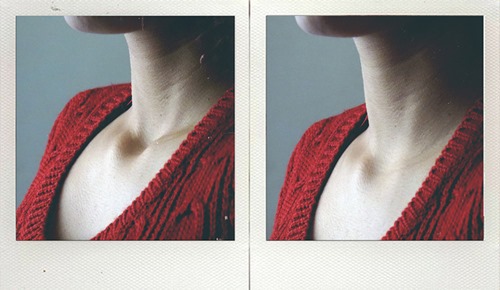The Paradox of Pursuing Happiness and The Art of Self-Acceptance
I was born with much sensitivity. The world was liquid; I was a sponge. Shame, guilt, fear were easily inflated - a feedback from teammate, an argument with boyfriend, the look of a stranger, even the overcast sky.
Drowning, I found new strategy: fake it until I make it. To pass by sorrow, I shut my eyes under the blindfold. Busyness tied the knot. It worked. I hustled from task to task, deadline to deadline, responsibility to responsibility; squinting like a nocturnal creature under the sun at 12 o’clock. Armored by busyness, I felt bullet-proved.
In fact, I felt none. Except in rare moments of silent aloneness, a thin air of hollowness would blow through my bones. Deep inside, I knew my fortress was illusive. I was right. One day, my armor disintegrated. Stress, exhaustion, and anxiety finally broke me. I was drowning again.
There in desperation, I found another path, or the path found me, I do not know. I came to know of spirituality. Yoga, Zen, Mindfulness, I practiced them in earnest. "This must be it!" I exclaimed in relief. I was about to part with heartaches for good, to have inner peace ever after, perhaps even reaching enlightenment!
It turned out quite differently. The more I practiced, the more I encountered sufferings. All of a sudden, I was able to look at my own existence in a third person's eyes. Detached from my own emotions, I saw negative emotions and self-sabotaging thoughts in slow motion, as they arrived at my door, as they swept away and burned my furniture.
“Dust that lands on the skin is harmless, but if only a tiny particle gets into the eye, it is very painful. Someone who is searching for clarity becomes sensitive because the eyes must be open, even if what they see is sometimes very unpleasant. She sees more suffering than someone who is not seeking. The person who is not searching for clarity does not even know what brings him or her happiness or sorrow.”
T. K. V. Desikachar, The Heart of Yoga
“This is all wrong! If I were to be spiritual, I should not have these feelings and thoughts in the first place!” I scolded myself for letting things get so out of control! Thus I got angry about my anger, distracted by my distraction, anxious about my anxiety, fearful about my fears. 2 months in this circle of sufferings beget sufferings, one afternoon in October 2014 I lied flat on my blue sofa, tears blurred my gaze at the spider web on the ceiling; I thought of killing myself. In the dark bottom of my spiritual practice, suddenly it dawned on me: what damaged me the most wasn’t my negative emotions, but my resentment at having them in the first place. How ironic! I had pursued happiness in an unhappy way!
That moment taught me a precious lesson: spiritual practice isn’t about whipping negative emotions, sentencing them to twenty lashes so that they dare not come out again - they always will. What we resist will persist.
True spiritual practice is about making peace with non-peace, finding joy in non-joy, and feeling loving toward the unlovable.
The compassion towards all sentient beings starts first with the compassion towards our own human nature. It is the tendency of the human mind to overthink, overanalyze, over-rationalize; to be hit by mellowness, heartache, self-hatred; to feel jealous of other’s good fortunes, shamed and guilty by the past, worried by the future; to be swept away from present by the winds of thoughts, images, words.
Spiritual practices open our eyes. We stand naked, staring at our own demons in the face. Different from before, we are no longer possessed. Now that we have found them, another problem surfaces. We don’t know what to do with them! Beating them is futile. Running away from them is fruitless. The only way is love.
The only way is love.
With the love towards the unlovable, we learn to accept and cherish our demons. We celebrate their existence, welcome their arrivals. We breathe and smile and watch them savage our house.
So that they may teach us something. My resistance shows me my True North by always pointing south. My jealousy reveals my poverty mentality and my unfulfilled dreams. My procrastination helps me see my fear. My irritation towards someone discloses the part of me which I haven’t made peace with.
So that they may leave our house for good, instead of lurking in the attic of our psyche.
The pursuit of happiness is meant to be done happily.
The verses from a Rumi’s poem breezed into my mind. Only now I truly understood it meant.
This being human is a guest house.
Every morning a new arrival.
A joy, a depression, a meanness,
some momentary awareness comes
as an unexpected visitor.
Welcome and entertain them all!
Even if they are a crowd of sorrows,
who violently sweep your house
empty of its furniture,
still, treat each guest honorably.
He may be clearing you out
for some new delight.
The dark thought, the shame, the malice.
meet them at the door laughing and invite them in.
Be grateful for whatever comes.
because each has been sent
as a guide from beyond.
Jelaluddin Rumi, The Guest House
(Translation by Coleman Barks)
- - photo courtesy: Chris Zerbes, Irmeli Aro, Silence Effects on Flickr in accordance with Creative Common





